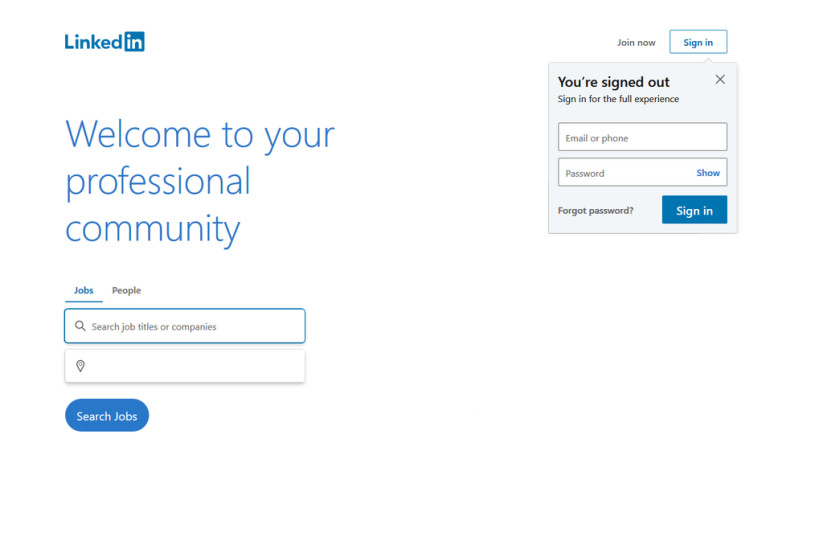LinkedIn, a social media site used for professional networking, has been accused by UK Lawyers for Israel (UKLFI) of failing to remove antisemitic content and false information about Israel.
UKFLI contacted LinkedIn about their failure to address anti-Israel and antisemitic content on the site after an individual who was concerned about the unchallenged antisemitism on the platform reached out to UKLFI.
The individual reported that LinkedIn had removed two images of “Jews as pigs” but a third image depicting a face with the message “Jews/Zionists are pigs say the Qur’an” was not removed. When the user reported the content, LinkedIn responded that it didn’t breach their policies.
LinkedIn’s Professional Community Policies do not specifically ban the sharing of antisemitic content, however one of the terms is “We don’t allow bullying or harassment. This includes targeted personal attacks, intimidation, shaming, disparagement, and abusive language directed at other members.”
Antisemitic content on LinkedIn
Fighting Online Antisemitism (FOA) released a report in 2022 showing that the site failed to remove the majority of reported anti-Israel and antisemitic content.

FOA submitted a Freedom of Information request that had found that, between April 2022 and September 2022, 100 pieces of antisemitic content had been reported but only 32 were removed.
In many of the cases, academic professionals had shared misinformation on the state of Israel, accusing Israel of massacres and praising terrorists as “martyrs,” explained UKLFI in a post on Sunday. The organization expressed that they felt that these posts did indeed breach LinkedIn’s policies, however they were not removed.
Another user told UKFLI that while attempting to provide historical information on a post made by neo-Nazis, her own comments were removed while the antisemitic content was allowed to stay.
"My experience has been one of bullying and harassment because I write about and report antisemitism on LinkedIn,” the professional told UKLFI.
“LinkedIn is a professional organization for networking aimed at professionals. It therefore has more credibility than other social media outlets. While LinkedIn claims not to tolerate all forms of hate speech, it appears not to apply that standard to antisemitism,” Caroline Turner, director of UKLFI, commented.
A spokesperson for LinkedIn responded to UKLFI, according to the organization, saying that “While we cannot comment on another member’s account for privacy reasons, antisemitism and other forms of hate speech do not belong on LinkedIn or in our communities. We’re committed to setting a high standard for safe conversations on our platform, and we’ll take action on any content or behavior that goes against our Professional Community Policies. This is deeply important and we’ll continue to invest in the features and tools that keep our platform safe.”
